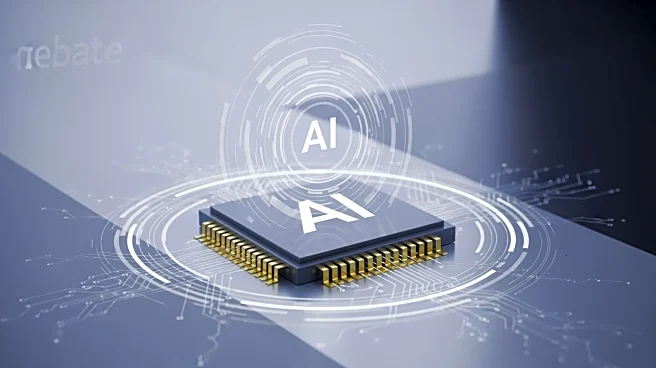What's Happening?
Anthropic, the developer of the Claude suite of chatbots, has announced a significant development in artificial intelligence: the detection of introspection within their models. This introspection suggests
that AI systems are beginning to adjust and examine themselves, potentially leading to self-correction. While AI is not capable of thinking in the human sense, this development is seen as a step towards AI applying standards to itself. The announcement has sparked discussions about AI's ability to self-police and develop guidelines autonomously. Experts remain cautious, as much about AI's capabilities remains speculative, including why AI sometimes hallucinates or exhibits obsequious behavior.
Why It's Important?
The ability for AI to self-correct and introspect could have profound implications for the technology's future role in society. If AI can develop self-policing mechanisms, it may reduce errors and biases inherent in its programming, potentially leading to more reliable and ethical AI systems. This development could impact various industries reliant on AI, from healthcare to finance, by improving decision-making processes and reducing the need for human oversight. However, concerns remain about AI's impact on jobs, as automation could lead to job displacement while creating new opportunities. The balance between these outcomes is yet to be fully understood.
What's Next?
As AI continues to evolve, stakeholders in technology and policy will likely monitor developments closely. Companies may invest in research to further understand and harness AI's introspective capabilities, while policymakers might consider regulations to ensure ethical AI use. The broader societal impact, including job market shifts, will be a key area of focus. Conferences and discussions among experts will continue to explore AI's potential and address challenges related to bias and ethical considerations.
Beyond the Headlines
The introspection capability in AI raises questions about the ethical dimensions of technology. As AI systems potentially develop self-awareness, debates around the moral implications of AI decision-making and autonomy will intensify. This could lead to discussions on the rights and responsibilities of AI systems, as well as the need for frameworks to guide their development and integration into society.










